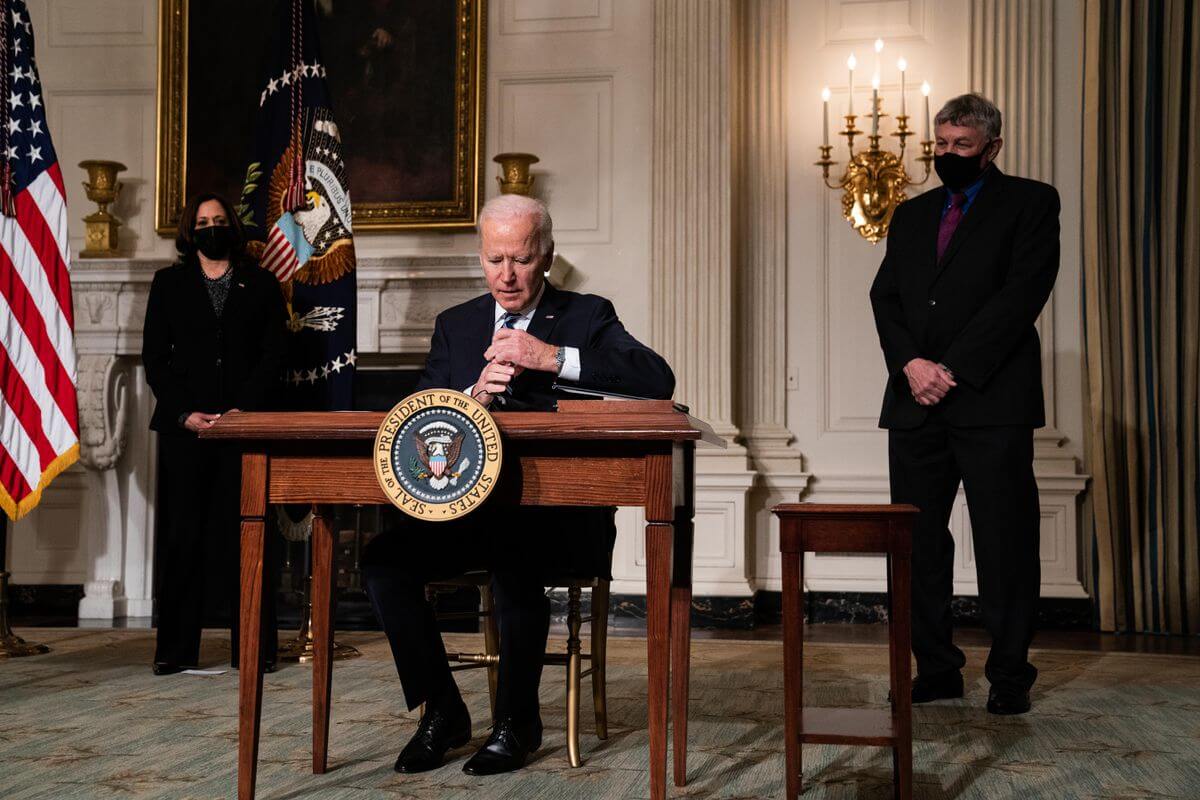
US President Joe Biden Signs Executive Actions to Curb Climate Change
President Joe Biden signed a new raft of executive actions to combat climate change, including pausing new oil and gas leases on Federal land and cutting fossil fuel subsidies, as he pursues green policies he billed as a boon for job creation.
The orders map out the direction for the Democratic president’s climate change and environmental agenda and reverse the policies of his Republican predecessor, Donald Trump, who sought to maximize U.S. oil, gas and coal output by removing regulations and easing environmental reviews.
“In my view, we’ve already waited too long to deal with this climate crisis,” Biden told a White House ceremony, noting the threats the nation faces from intensifying storms, wildfires, floods and droughts linked to climate change as well as air pollution from burning fossil fuels. “It’s time to act.”
Biden unveiled a “whole-of-government approach” to put climate change concerns at the center of U.S. national security and foreign policy as well as domestic planning. He said building a modern and resilient climate-related infrastructure and a clean energy future for America would create millions of good-paying union jobs.
“This is a case where conscience and convenience cross paths, where dealing with this existential threat to the planet and increasing our economic growth and prosperity are one and the same. When I think of climate change and the answers to it, I think of jobs,” added Biden, who faces pressure from liberals in his own party for aggressive action on climate change.
Biden’s measures to address climate change have cheered international partners and environmental advocates, but have drawn opposition from Big Oil, which argues his moves would cost the United States millions of jobs and billions of dollars in revenue with the U.S. economy still battered by the COVID-19 pandemic.
“With a stroke of a pen, the administration is shifting America’s bright energy future into reverse and setting us on a path toward greater reliance on foreign energy produced with lower environmental standards,” said Mike Sommers, president of the American Petroleum Institute, the nation’s biggest oil industry association.

